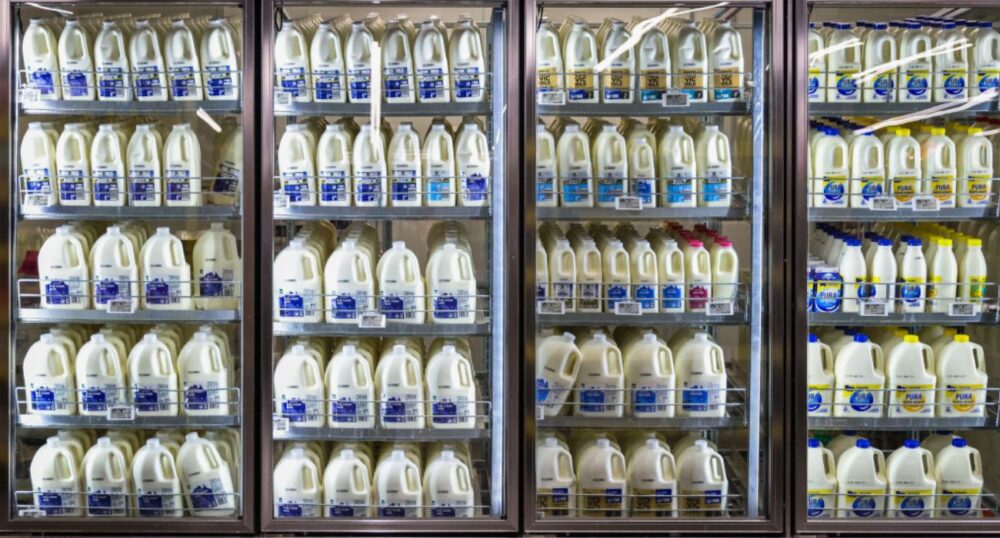The highly pathogenic avian influenza has been detected in grocery store milk products for the very first time, the United States Food and Drug Administration announced.
While the news of milk testing positive for HPAI viruses, including H5N1 or bird flu, may be alarming to some, the FDA has downplayed the discovery, noting that further tests will be run and their results released in several days or weeks.
“To date, we have seen nothing that would change our assessment that the commercial milk supply is safe,” the agency said in an advisory.
It is unknown how H5N1 is transmitted between animals and how it became virulent among cattle. The virus typically affects birds and is thought to spread from wild birds through nasal discharge and feces. In cattle, the virus is predominantly found in milk, leading researchers to believe it primarily infects mammary tissue, per CNN.
The FDA explained in its advisory that while raw milk may be infected with the virus, the pasteurization process is believed to render it inactive. Once neutralized, the viral particles — now purportedly harmless — might remain in pasteurized products, which is what the agency believes was detected during quantitative polymerase chain reaction (qPCR) testing.
The follow-up tests will aim to determine whether the traces of H5N1 found in commercial milk products are viable. They involve injecting an egg with a positive sample to see whether the viral particles replicate. While time-consuming, the FDA explained this is the most accurate way to determine if a live virus is in a product.
Two humans have been diagnosed with H5N1, including one in Texas this year, but researchers contend the risk to humans remains low, as previously reported by The Dallas Express.
Yet Dr. Eric Topol, founder of the Scripps Research Translational Institute, has suggested that the current outbreak may be more impactful than the FDA and the United States Department of Agriculture have let on.
“The dissemination to cows is far greater than we have been led to believe,” Topol wrote in an email to CNN on Tuesday. “The FDA assurance that the dairy supply is safe is nice, but it’s not based on extensive assessment yet, which they acknowledge, and won’t engender trust and confidence because it comes in the wake of USDA mishandling.”
Avian flu has been found in multiple states, including Texas, this year. Around 1.6 million egg-laying hens were euthanized in North Texas in early April after the virus was detected in the flock as previously reported by DX.
H5N1 is not believed to be fatal in humans or cattle, and the Centers for Disease Control and Prevention has not detected any unusual influenza activity in people thus far.
Officials have assured the public there is no reason for panic but warn of the risk associated with consuming raw milk products and advise wearing appropriate personal protective equipment when working with cattle that are infected. Infected cattle have decreased appetites and exhibit changes in their milk production.
“The FDA and USDA are working closely to collect and evaluate additional data and information specific to H5N1 in dairy cattle and to support state counterparts as this emerging disease in dairy cattle is managed,” a statement from the FDA reads. “These important efforts are ongoing, and we are committed to sharing results as soon as possible.”

